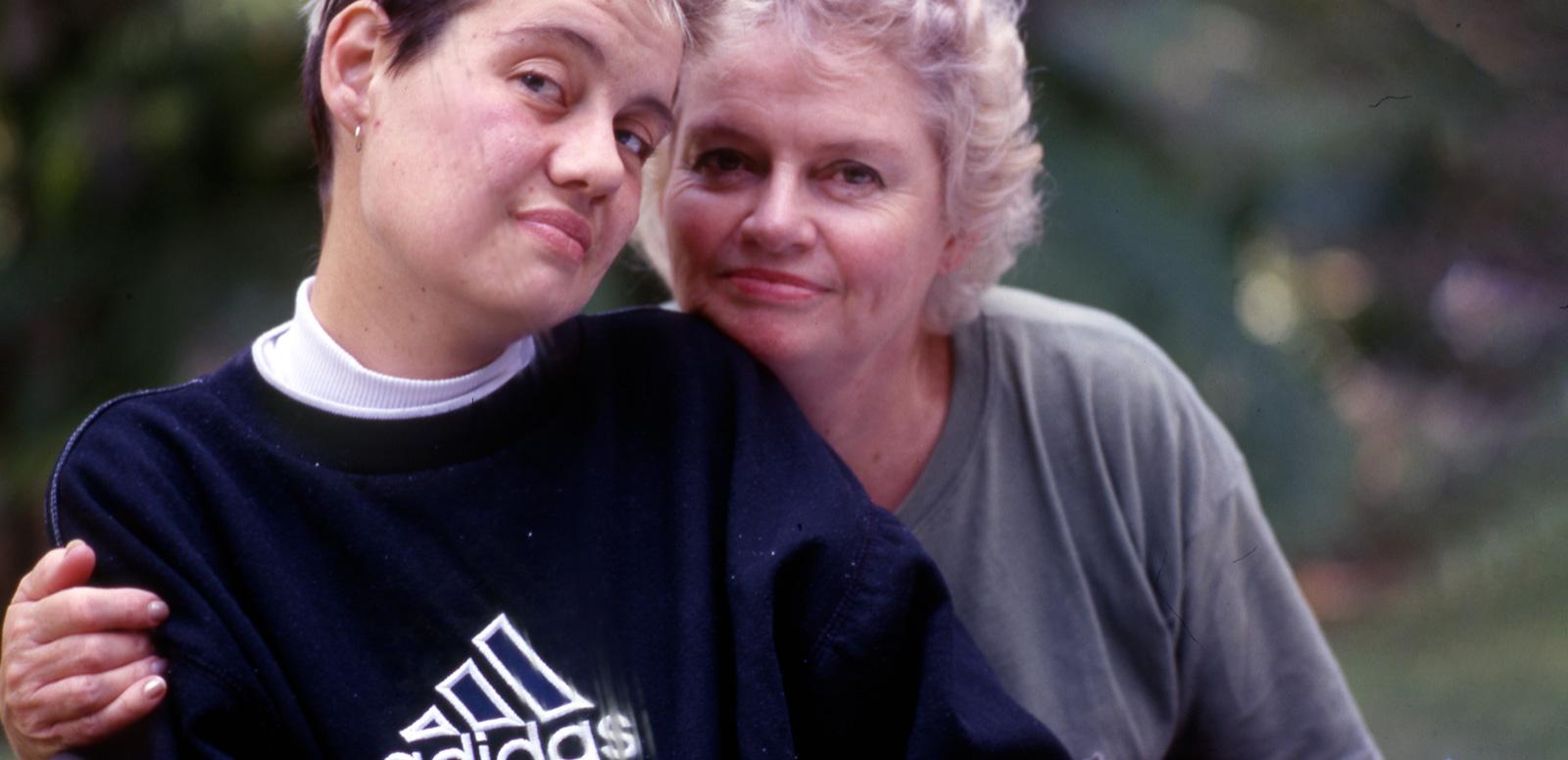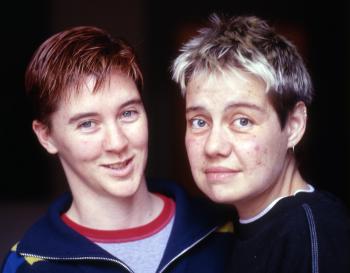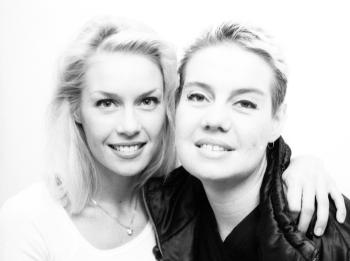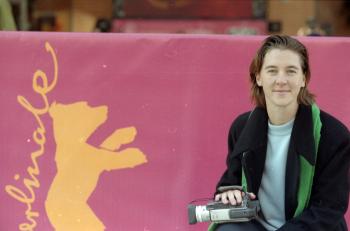In 1999, SBS aired Chrissy, about a young lesbian living with HIV. Guest contributor Jacqui North recalls making the film about her best friend, and how it also became a film about the last year of Chrissy’s life.


In 1999, SBS aired Chrissy, about a young lesbian living with HIV. Guest contributor Jacqui North recalls making the film about her best friend, and how it also became a film about the last year of Chrissy’s life.
We were brave in making this film. Our teenage suburban lives were stifled by homophobia. I was 16 when gay male sex was legalised in NSW. Chrissy was 19 when it was legalised in WA, where she grew up.

But we emerged into a fabulous loving queer family; it was Mardi Gras all the time on Oxford Street. And while we celebrated freedom, we also fought discrimination.
As a 25-year-old film school graduate, I aimed to battle double standards faced by women – judged innocent or guilty, depending on how they contracted HIV. We wanted to celebrate diversity and challenge stigma.
Originally, funding decision-makers reacted with disgust to my film’s pitch. But Metro Screen lent equipment and I shot a proof of concept about three HIV+ women. SBS Independent wanted a half-hour film about one friend, but she became heroin addicted. When I asked Chrissy instead, she agreed.
A NSW Film and Television Office (now Screen NSW) Young Filmmaker Grant of $30,000 enabled a 7-day shoot across 6 months, with another Australian Film Television and Radio School graduate, Justine Kerrigan on camera and Leo Sullivan on sound.
The film shows Chrissy, a huge Madonna fan and the eldest of a close-knit family of 4 girls, living in Bobby Goldsmith housing, provided by Australia's longest-running HIV charity. To fill out her long days, Chrissy listens to her neighbour, Tim Finn, play piano.
I accompanied Chrissy as she revealed her HIV positive status to her family, a secret she hid from them for 8 years:
Excerpt from documentary Chrissy (1999). Director: Jacqui North.
Chrissy took cocktails of medication; antiretroviral therapy was not yet available.
The sisters had different emotional reactions to HIV. Adele, a swimsuit model, tells Chrissy that HIV is dirty and a 'your-own-fault' disease, not realising her sister’s diagnosis. Marni, preferring to laugh rather than cry, takes Chrissy nightclubbing. When Bobby, the youngest sister, gets pregnant, she decides to call the baby Chrissy.
Using the new mini-DV hand-held camera and shotgun microphone as director and shooter, I conveyed a raw intimacy as Chrissy’s health deteriorated.
Never a subject, Chrissy uses the camera to ask, ‘Can I come home to die, Mum?’. ‘No’ meant she accessed support from her chosen queer family, lesbian care workers and nurses at St Vincent's Hospice:
Excerpt from documentary Chrissy (1999). Director: Jacqui North.
Her last hospital admission was torturous. Chrissy’s ‘do-not-resuscitate’ directive was ignored, a pacemaker inserted and then removed.

I visited daily, smuggling the camera into the hospital, filming just once. Chrissy asked me to assist in her death, but a social worker advised against it. Chrissy struggled on, giving time to her sisters and mum to say their goodbyes.
SBS Independent signed up after viewing a one-hour rough cut. Tim Finn created the soundtrack and Madonna donated Chrissy’s chosen song 'Live to Tell'. Home movies provided vignettes of younger family life.
Chrissy was just 27 when she died.
First identified over 40 years ago, AIDS has now killed 36 million people according to UNAIDS.
New treatments came too late for many, but Australia's community-led campaigns dramatically reduced transmission and saved lives.
HIV/AIDS is no longer a death sentence but still devastates lower-income countries.
Chrissy was inspired by HIV+ women, and feminist and activist filmmakers like Jessica Douglas-Henry, Pat Fiske, Lilias Fraser, Frederick Wiseman and Tom Zubrycki.
My goal was to practise longitudinal consent. Hence, I collaborated as a participant not an observer. My eventual shoot-to-film ratio was low at 20:1. Directing Chrissy was a life lesson in not waiting for funding.
Chrissy is the world’s first documentary to centre the story of an HIV+ lesbian. It broke records as the most watched SBS Independent documentary to that date.
Winning the Berlin Film Festival’s Teddy Award, the most prestigious LGBTQI+ prize, it screened at 40 festivals, was nominated for an ATOM award, broadcast on Danish, Canadian and American TV, and is held in the collections of 12 universities.
In 2020 it screened at the world's biggest HIV conference and Pride, San Francisco.
I worked as a Festival Director for World of Women’s Cinema, Executive Producer at CAAMA, and managed 130 Big Screen film festivals for the National Film and Sound Archive.

Today’s funding structures often mean I work without being resourced. This results in a frustratingly slow process, but I utilise skills I’ve developed in this framework.
My core purpose remains filmmaking that centres migrant, LGBTQI+ and First Nations’ voices, amplifying outsider stories to connect with audiences and drive change.
Biological and chosen family dynamics are fascinating, and creating films with archival materials remains a central tenet of my work.
Creative Producer Jacqui North connects diverse communities via strategic, exciting films, immersive arts and events reaching audiences from 300 to 1.8M. Find out more about Jacqui on LinkedIn. You can stream Chrissy on the Frameline website or watch the film with a library or university login here.
Main Image: Chrissy pictured with her mother Barbara. Photo by Justine Kerrigan.
This article was first published in 2021. Some details were updated in 2023.
The National Film and Sound Archive of Australia acknowledges Australia’s Aboriginal and Torres Strait Islander peoples as the Traditional Custodians of the land on which we work and live and gives respect to their Elders both past and present.